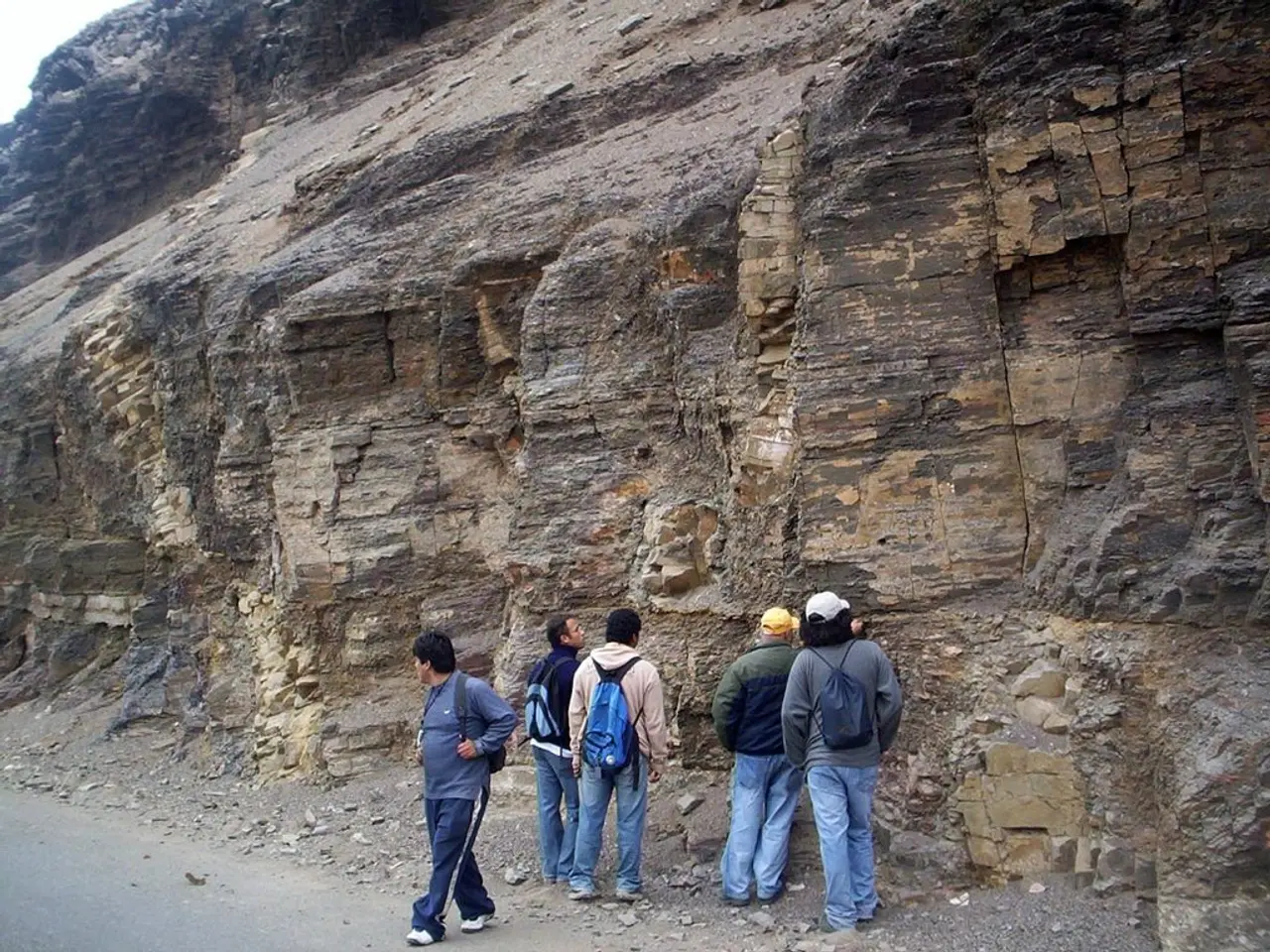Small-scale fashion businesses grappling with climate change, COVID-19, and Brexit challenges
UK Fashion Micro, Small, and Medium Enterprises (MSMEs) Adjust Relocation Strategies Amidst Climate Change, COVID-19, and Brexit Challenges
Fashion MSMEs in the UK are adapting their relocation strategies to navigate the complexities presented by climate change, COVID-19, and Brexit. A comprehensive study, commissioned by the Creative Industries Council and conducted by researchers from London College of Fashion, University of the Arts London, has identified several factors and drivers behind these strategic shifts.
Key Factors and Drivers
- Supply Chain Disruptions and Lead Time Shortening Due to the pandemic and Brexit-related border controls, MSMEs face increased complexity and delays in fragmented supply chains. This has led MSMEs to reconsider their location and operational models, with some opting to move closer to consumers or streamline operations to reduce lead times.
- Regulatory Compliance and Market Standards Post-Brexit Brexit has introduced new trade regulations and non-tariff barriers for UK market access, requiring MSMEs to build capacity around local compliance, certifications, and quality standards. To meet these standards efficiently, some MSMEs are relocating near certification centers or hubs with supportive infrastructure.
- Cost Pressures and Incentives due to Climate Change and Sustainability Requirements Climate change policies are increasing environmental compliance costs and pushing MSMEs to adopt greener practices. This has created drivers for relocation to areas with cleaner energy sources or better waste management infrastructure, or to clusters that provide shared sustainable technologies to reduce costs.
- Government Support and Trade Agreements Influencing Location Choices Post-Brexit UK trade deals, such as the India-UK FTA, offer duty-free access and incentives for MSMEs to expand exports. However, to capitalize on these benefits, MSMEs often need to locate near trade facilitation hubs with streamlined customs, subsidized technology, and export infrastructure.
- Digital Transformation and Remote Flexibility Triggered by COVID-19 The pandemic has accelerated digital adoption in MSMEs, allowing some functions to be decentralized or relocated virtually. This has created a need for physical location choices to reflect hybrid operational models that balance remote work with proximity to manufacturing or logistic hubs.
- Labour Mobility and Social Security Protocols Post-Brexit agreements maintain some mobility for professionals and reduce HR costs via social security arrangements. MSMEs may relocate or set up satellite offices to leverage these provisions for short-term business mobility and cost efficiency.
Summary Table of Factors and Their Relation to Drivers
| Factor | Driver Detail | Impact on Relocation Strategy | |-------------------------------|------------------------------------------------------|---------------------------------------------------| | Supply chain fragmentation | Delays and high transport costs post-COVID & Brexit | Move closer to suppliers/customers or logistic hubs | | Regulatory compliance | New UK standards & certifications post-Brexit | Relocation near certification/testing facilities | | Climate change regulations | Sustainability compliance and infrastructure | Shift to regions with green infrastructure | | Government incentives & FTAs | Duty-free market access, subsidies, export support | Location near trade facilitation hubs | | Digital adoption (COVID) | Hybrid operation models | Office & production space balance | | Labour mobility provisions | Social security conventions with the UK | Establish satellite offices to optimize work costs |
In conclusion, fashion MSMEs in the UK are adapting their relocation strategies to overcome new regulatory and trade barriers post-Brexit, meet increased climate compliance costs, adapt post-COVID supply chain challenges, and leverage government incentives and digital transformation. The combined impact of these factors compels MSMEs to seek geographic and operational repositioning that minimizes costs, improves compliance, and enhances market responsiveness.
Data collection for the study included a questionnaire targeting fashion MSMEs in the UK and a focus group with stakeholders. The findings were complemented with qualitative insights from five stakeholders representing fashion MSMEs. The authors highlight four focal points for policy intervention: costs, environmental and social sustainability, logistics, and risk management.
Dr Emmanuel Sirimal Silva, the Interim Director of Fashion Business Research and a Reader in Applied Statistics at London College of Fashion, University of the Arts London, led the research alongside Dr Alessandra Vecchi, a Reader with London College of Fashion, University of the Arts London. The report also examines the impact of overseas mergers and acquisitions on the UK video games industry and Post-Brexit migration and accessing foreign talent in the Creative Industries.
The survey recorded a total of 37 usable responses from UK fashion MSMEs. The study used a mixed methods sequential explanatory research design, involving quantitative and qualitative research. In 2015, worldwide exports of creative goods exceeded 500 billion USD, with a 150% increase since 2000.
- Amidst supply chain disruptions and increased lead time shortening caused by the pandemic and Brexit, some UK fashion MSMEs are considering relocating to areas nearer their consumers or suppliers to streamline their operations.
- To meet the new trade regulations and non-tariff barriers following Brexit, UK fashion MSMEs are relocating closer to certification centers or hubs with supportive infrastructure to ensure regulatory compliance and maintain market standards.
- Due to increased environmental compliance costs associated with climate change policies, MSMEs are attracted to regions with cleaner energy sources, better waste management infrastructure, or clusters with shared sustainable technologies to reduce costs.
- UK fashion MSMEs are taking advantage of post-Brexit trade deals, such as the India-UK FTA, by locating near trade facilitation hubs with streamlined customs, subsidized technology, and export infrastructure to maximize duty-free market access and exports.
- Accelerated digital adoption due to COVID-19 has forced MSMEs to reassess their physical location choices to accommodate hybrid operational models that balance remote work with close proximity to manufacturing or logistics hubs.
- Post-Brexit labor mobility provisions, such as social security arrangements, are prompting MSMEs to establish satellite offices to leverage short-term business mobility and achieve cost efficiency.
- The study revealed four key areas for policy intervention aimed at addressing the economic challenges faced by UK fashion MSMEs: costs, environmental and social sustainability, logistics, and risk management.
- Dr Emmanuel Sirimal Silva, the Interim Director of Fashion Business Research at London College of Fashion, University of the Arts London, led the comprehensive study examining the impact of climate change, COVID-19, and Brexit on UK fashion MSMEs.
- In 2021, the internacional trade of creative goods reached more than $500 billion, with a 150% increase since the year 2000, demonstrating the continued growth and importance of the creative industries in general-news economic landscape.




